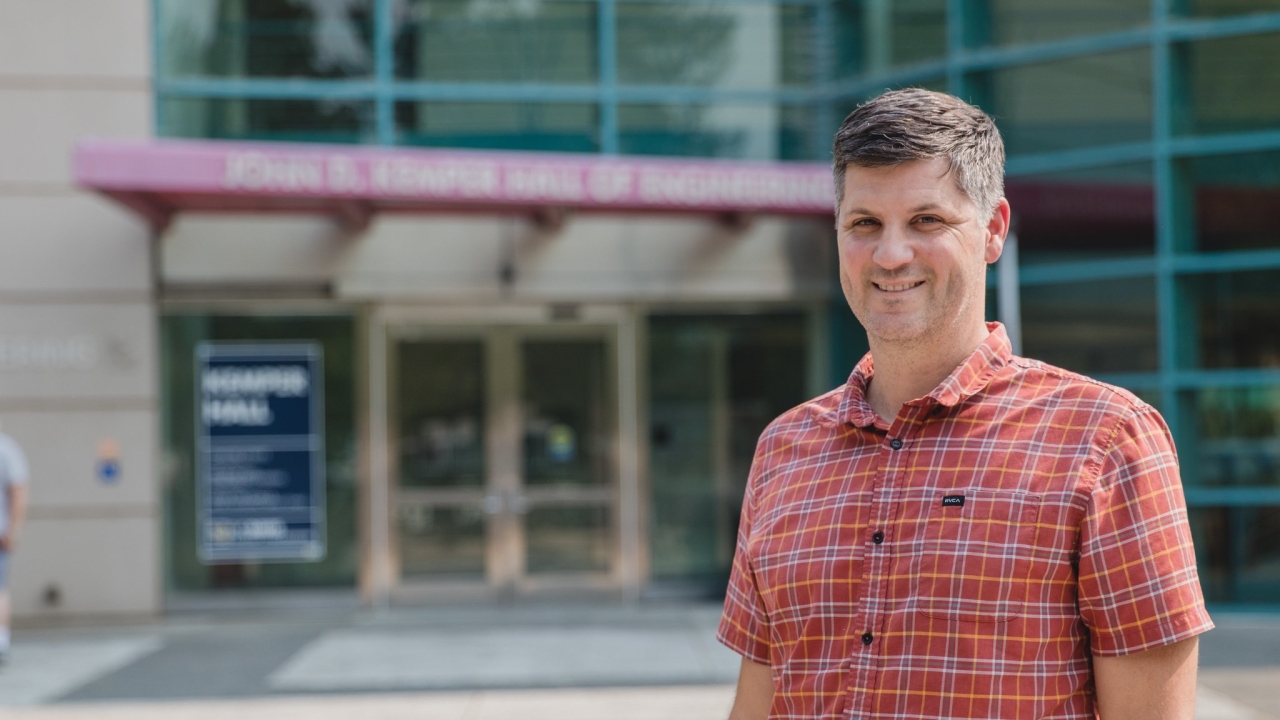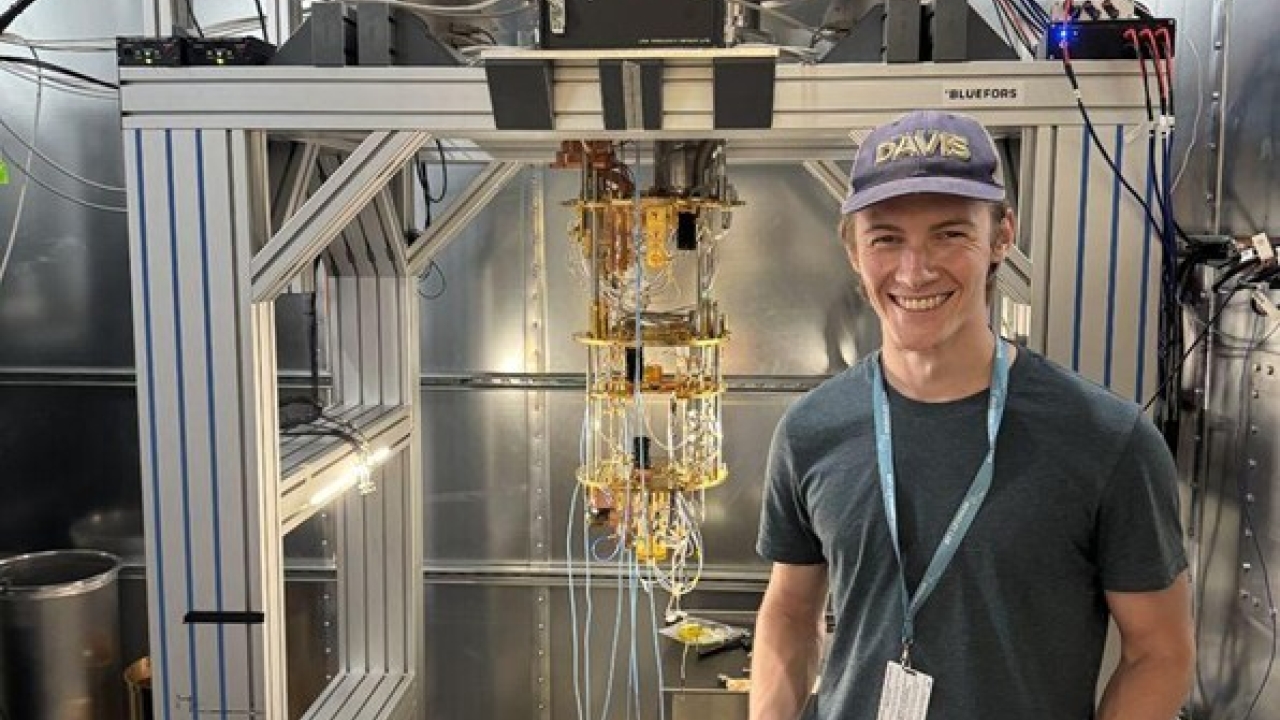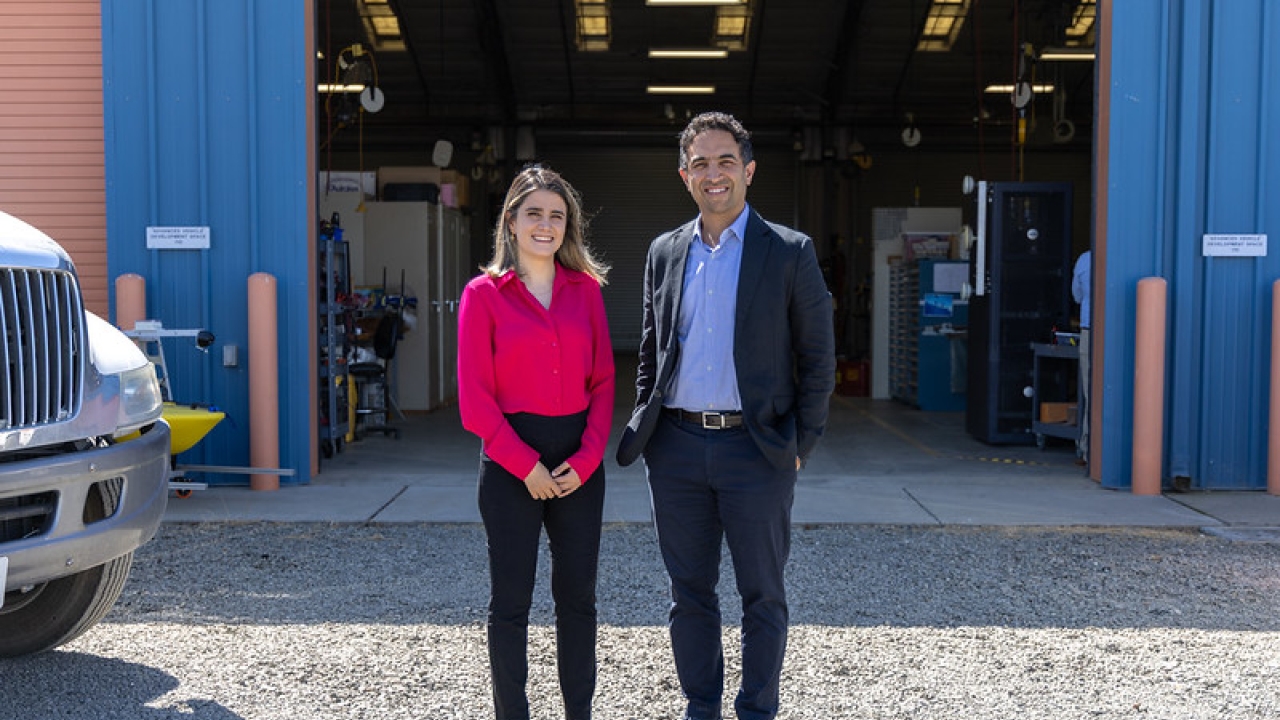
UC Davis Affiliated Startup Developing Ecommerce Fraud Prevention Solutions Acquired by Stripe
By AJ Cheline, originally posted by the UC Davis Office of Research.
Bouncer Technologies, a startup founded on technology developed at the University of California, Davis, has been acquired by Stripe, a global technology company that builds economic infrastructure for the internet.
Bouncer was founded in 2019 by UC Davis Associate Professor of Computer Science Sam King along with fellow ex-Lyft employees Will Megson and Steven Liu. The company developed a new, secure app called Bouncer Scan that uses machine learning to read credit cards in seconds and reject fraudulent cards, transactions and phones.
Bouncer Scan is an app that can be integrated into a business’ ecommerce platform. It allows the user to scan an image of the card and captures the necessary information for secure payment while rejecting fraudulent schemes like images of cards, fake cards and phones used to scan thousands of cards. The company states that the analysis is performed locally on the user’s mobile phone and that a subset of the data is transmitted without the image.
Stripe plans to integrate Bouncer’s technology into Stripe Radar, a fraud prevention tool whose machine learning models are trained on purchases made at millions of companies around the world every day.
“Bouncer has developed a great tool for modern internet businesses, providing a way to quickly identify stolen cards, while also ensuring legitimate customers can transact without being blocked,” said Simon Arscott, Business Lead for Stripe’s Radar fraud prevention product. “We’re thrilled to welcome the Bouncer team, and their years of experience building payment authentication software for businesses.”
Leveraging the Intersections of Industry and Research
Bouncer’s foundational technology was developed in King’s lab at UC Davis and licensed through the university’s technology transfer office — InnovationAccess.
Having made a round-trip from academic research to industry and then back to academic research, King developed an appreciation for how the two benefited each other.
King previously held positions at Lyft and Twitter during his stint in industry. He had also launched a startup that was acquired by Twitter.
“The most important lesson I learned from my time in industry was how the software you build impacts real people who are trying to use the apps that we protect,” said King. “We took this perspective — one of putting the end-users first — and applied it to everything we did.” This guided his team’s research and development towards the idea of scanning cards instead of blocking suspicious transactions and applying machine learning and systems to ensure that everyone has equal access to apps.
King leveraged the technology commercialization resources at UC Davis.
“I view the technology transfer process as one that empowers faculty to do more with their research as opposed to an endpoint,” said King. “We are fortunate to have resources like Venture Catalyst and InnovationAccess at UC Davis to facilitate success at that intersection.”
UC Davis Venture Catalyst helped Bouncer secure its first working space at Davis Coworking, one of several incubator facilities participating in the university’s Distributed Research Incubation & Venture Engine (DRIVETM) network.
“The progress that the Bouncer team has made has been remarkable and we would like to congratulate them and the team at Stripe on the acquisition,” said Bill Tucker, interim associate vice chancellor for Innovation and Technology Commercialization. “It is very fulfilling to see innovations translated from university research enter the market and deliver value to society.”
King says another key enabler for Bouncer was being accepted to the prestigious and highly-competitive Y-Combinator program in 2019. This program, located in Silicon Valley, provides funding, training and connections to help secure investments.
“Research asks long-term questions and works on harder problems, and the company takes these ideas and builds real software for real people,” he said. “Combining the two together gives you the best of both worlds and in my opinion, you have to have both if you want to solve problems.”




